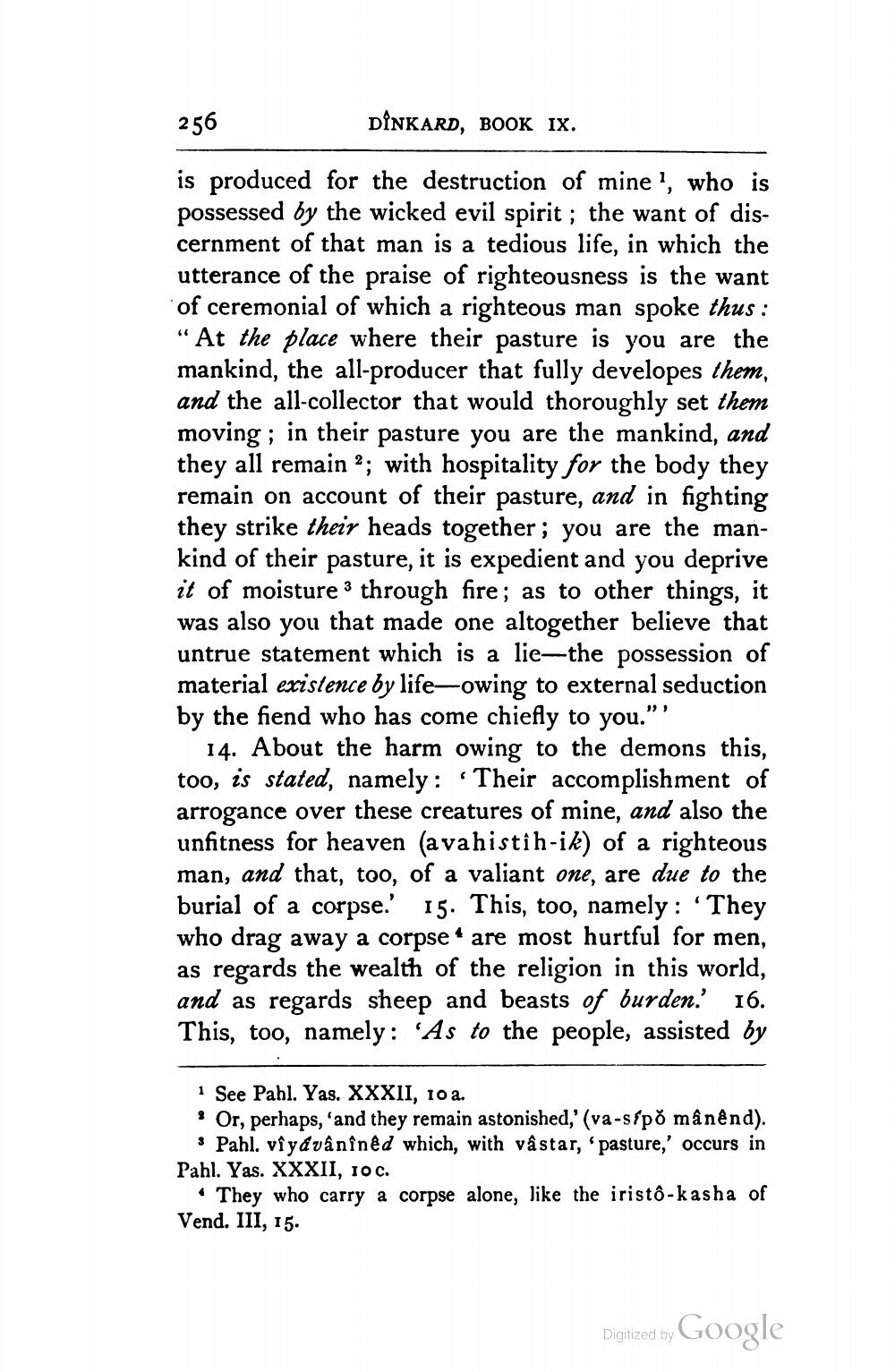________________
256
DINKARD, BOOK IX.
is produced for the destruction of mine ?, who is possessed by the wicked evil spirit ; the want of discernment of that man is a tedious life, in which the utterance of the praise of righteousness is the want of ceremonial of which a righteous man spoke thus : “At the place where their pasture is you are the mankind, the all-producer that fully developes them, and the all-collector that would thoroughly set them moving ; in their pasture you are the mankind, and they all remain ?; with hospitality for the body they remain on account of their pasture, and in fighting they strike their heads together; you are the mankind of their pasture, it is expedient and you deprive it of moisture 3 through fire; as to other things, it was also you that made one altogether believe that untrue statement which is a lie the possession of material existence by life-owing to external seduction by the fiend who has come chiefly to you.”'
14. About the harm owing to the demons this, too, is stated, namely: “Their accomplishment of arrogance over these creatures of mine, and also the unfitness for heaven (avahistih-ik) of a righteous man, and that, too, of a valiant one, are due to the burial of a corpse.' 15. This, too, namely: 'They who drag away a corpse * are most hurtful for men, as regards the wealth of the religion in this world, and as regards sheep and beasts of burden.' 16. This, too, namely: 'As to the people, assisted by
1 See Pahl. Yas. XXXII, 10 a.
Or, perhaps, and they remain astonished,' (va-sfpo mânênd). : Pahl. viyavânîned which, with vâstar, pasture,' occurs in Pahl. Yas. XXXII, 10 C.
• They who carry a corpse alone, like the iristô-kasha of Vend. III, 15.
Digitized by Google




